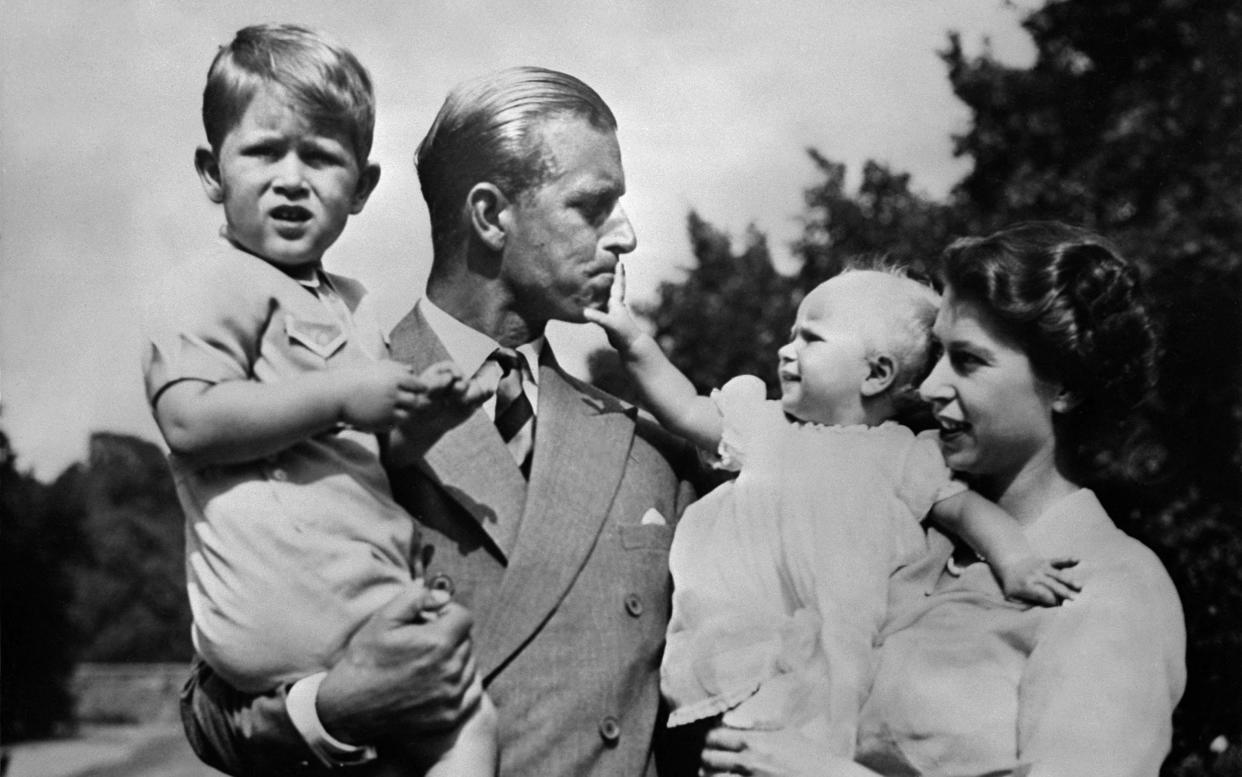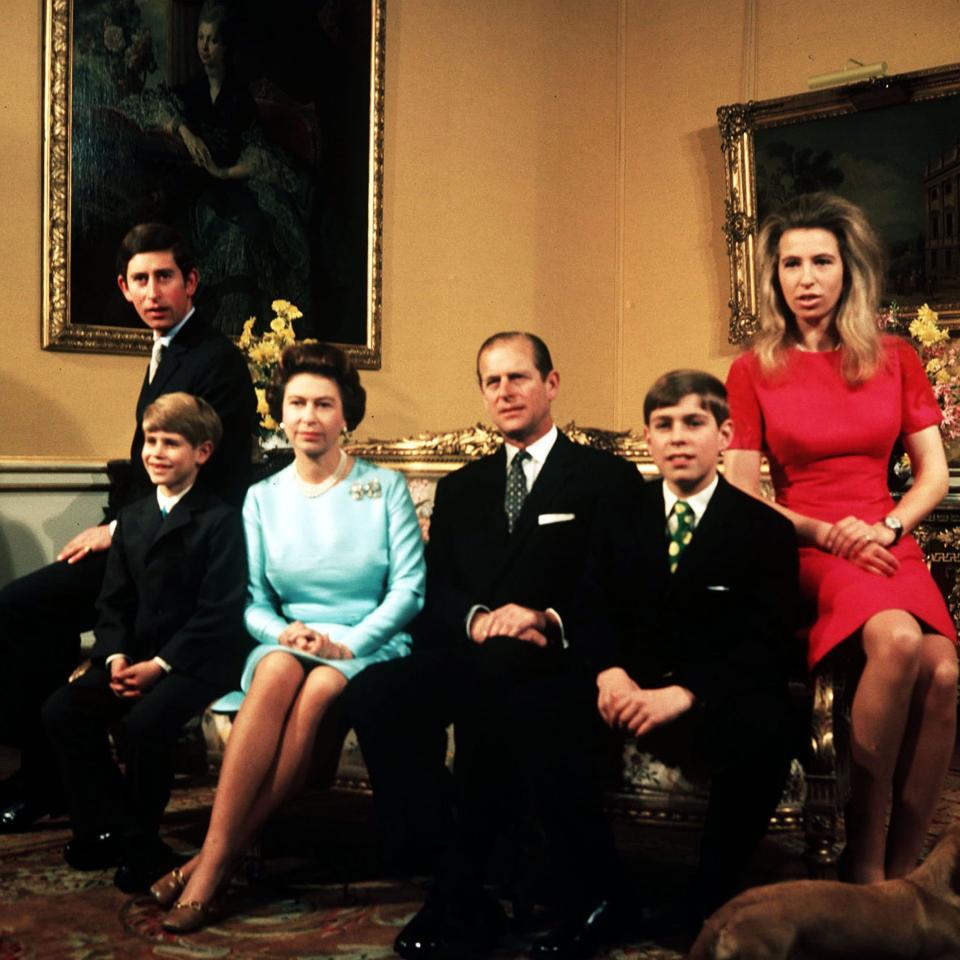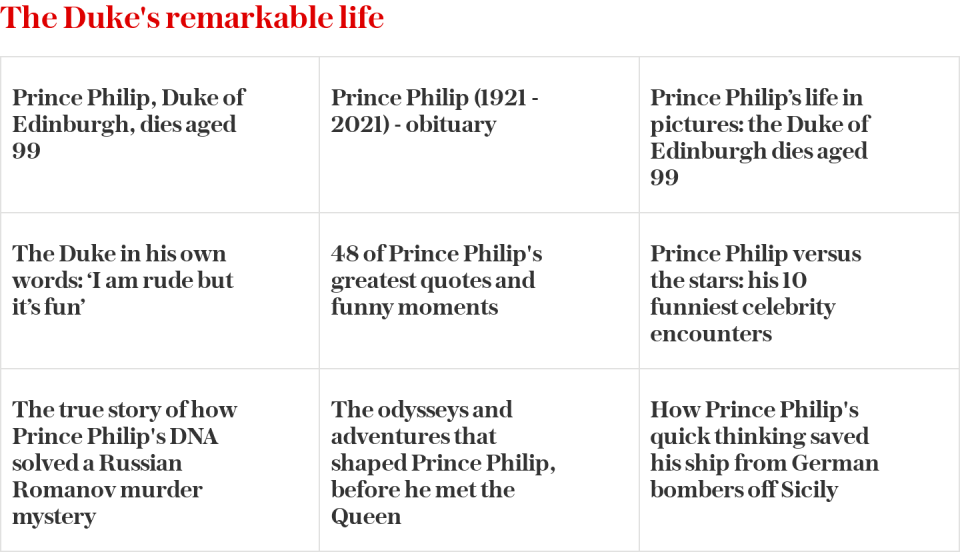Duke of Edinburgh: Princess Anne pays tribute to her father's enduring legacy

- Oops!Something went wrong.Please try again later.
- Oops!Something went wrong.Please try again later.
Princess Anne has summed up what life will be like without her father to guide the Queen, the institution of the Monarch and his family. Quite simply, she said, it will be “completely different”.
Speaking in advance of the Duke of Edinburgh’s death at the age of 99, the Princess Royal told of his immeasurable influence, both on those immediately around him and on Britain at large.
“Without him life will be completely different,” she told ITV News, adding: “From society’s perspective he was able to keep pace with the kind of technological changes that have such an impact… but above all that it’s not about the technology it’s about the people.”
In an interview recorded for broadcast after the Duke of Edinburgh's death, Princess Anne spoke movingly of what her father’s legacy might be, citing his steadfast support of the Queen in her role as Monarch as the chief example of his devotion to both his family and the kingdom over which she ruled.
She said of his position as Prince consort: “It must have evolved quite dramatically from the early stages. I don’t think the structure in terms of support t o the monarchy was designed to deal with a consort.
“Nobody had thought about what he was going to do. And it took a while to find people who understood he had extraordinary experience and skills that they could make use of. But he also found ways he could make an impact.”
The Princess Royal added that her father’s decision to give up his career in the Royal Navy in 1951 was a mark of his loyalty to his new bride and her then future role as Monarch.
“It shows a real understanding of the pressure the Queen was going through and that the best way he could support her was on giving up on his career,” she said.

Princess Anne also told ITV that her father’s long lasting legacy would be embodied in the Duke of Edinburgh Award he founded in 1956 to give young people a structured outlet.
“He believed there were things outside [of school] which were necessary to help you develop as an individual, which played to your strengths and if that weren’t academic there were other things that would be your strength,” she said.
The Princess described her childhood in moving terms, saying: “He had a nomadic lifestyle – which must have been really quite difficult because he was that much younger than his sisters…The father figure was very intermittent then went and his mother struggled at that stage, so he had friends elsewhere who took him in during the holidays.
“He was virtually a refugee at this stage, because he had nowhere else to go, literally. And that probably is why Gordonstoun had such an impact.”

Speaking as part of the same series of interviews Prince Edward, Earl of Essex, described the importance of his father’s advice and support to the Queen.
“My parents have been such a fantastic support to each other during all those years and all those events and all those tours and events overseas,” he said. “To have someone that you confide in and smile about things that you perhaps could not in public. To be able to share that is immensely important.”
Prince Edward also addressed his father’s sometimes problematic public image, describing it as “unfair” and undeserved.
“The public image that certain parts of the media would portray was always an unfair depiction. He used to give them as good as he got and always in a very entertaining way. He was always able to manage interviews and say things that the rest of us always dreamed we could say. He was brilliant. Always absolutely brilliant.”
The Earl added: “He had a wonderful sense of humour but of course you can always misinterpret something or turn it against them, so it sounds like it's not right. But anyone who had the privilege to hear him speak said it was his humour which always came through and the twinkle in his eye.”
Like his sister, Prince Edward said he would remember both his father’s public work and the steadfast support he gave the Queen.
“For what he has done in his public life, for all the organisations he has supported and influenced and obviously as my father and husband to my mother and all the work that he has done there and as a family we will remember that more than anything else,” he said.

